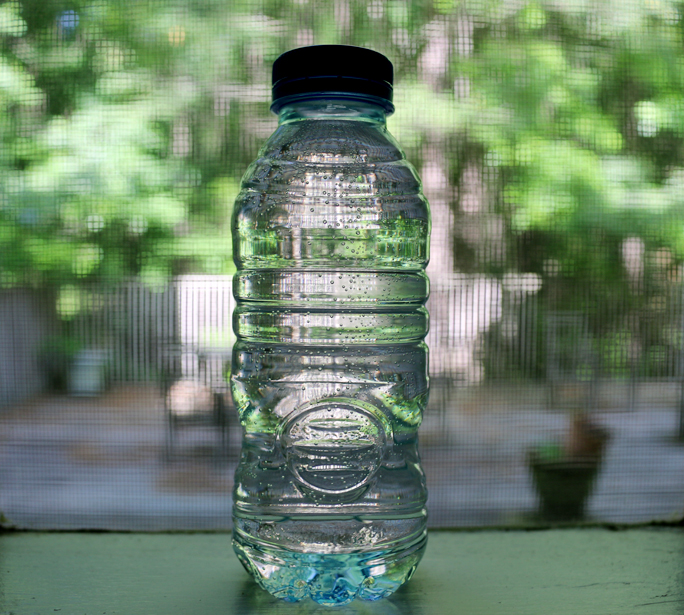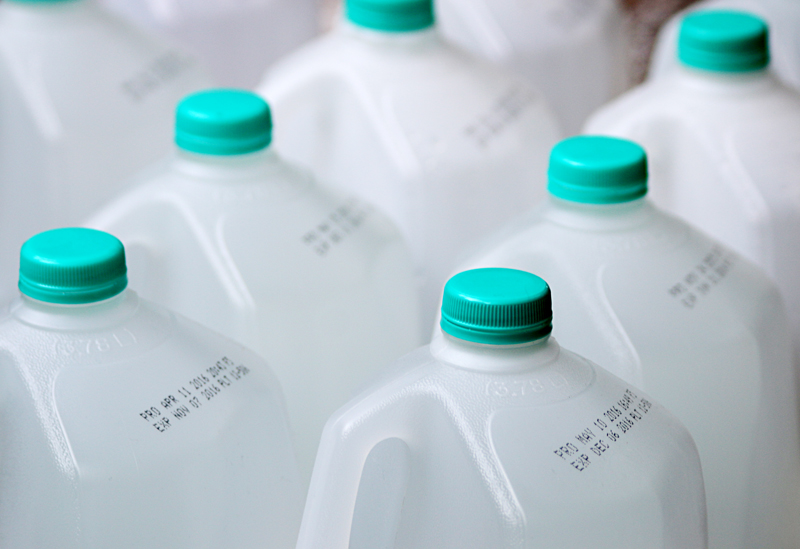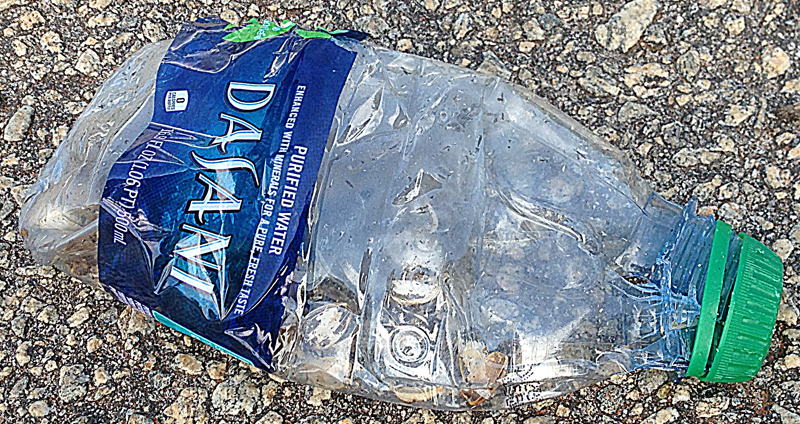In the latest salvo of the war against plastic waste, passengers aboard airplanes which are operated by Alaska Airlines will be served water from cartons into paper cups which can be recycled effective as of tomorrow, Thursday, November 4, 2021, which is estimated to save 1.8 million pounds of single-use plastics from flights over the next year — which is equivalent to the weight of 18 Boeing 737 airplanes.
Alaska Airlines Eliminates Plastic From Its Water Service Aboard Airplanes

“Inflight water service is the most significant contributor of onboard plastic waste”, according to this official press release from Alaska Airlines. “The switch to more sustainable solutions will effectively remove 22 million plastic cups and 32 million plastic bottles per year from Alaska flights.”
The cartons of Boxed Water Is Better — which is the name of the brand of water which will be served — are 92 percent plant-based, as they are manufactured from sustainably harvested trees and are fully recyclable.
Alaska Airlines became the first airline to offer Boxed Water Is Better earlier this year to passengers seated in the first class cabin and aboard airplanes operated by Horizon Air. The trial was a success with both passengers and employees, as the renewable packaged water alternative was reportedly preferred over plastic bottled water at a rate of two to one.
Plastic takes greater than 400 years to degrade, so most of it still exists in some form: “We estimate that 8300 million metric tons (Mt) as of virgin plastics have been produced to date”, according to this publication from Roland Geyer, Jenna R Jambeck, and Kara Lavender Law for the National Library of Medicine of the National Center for Biotechnology Information. “As of 2015, approximately 6300 Mt of plastic waste had been generated, around 9% of which had been recycled, 12% was incinerated, and 79% was accumulated in landfills or the natural environment. If current production and waste management trends continue, roughly 12,000 Mt of plastic waste will be in landfills or in the natural environment by 2050.”

If present trends are allowed to continue, approximately 12 billion metric tons of plastic will be in landfills by 2050 — which is 35,000 times as heavy as the Empire State Building.
This initiative is part of the continued leadership of Alaska Airlines in the reduction of waste during flights — from onboard recycling to being the first airline to eliminate plastic straws and stir sticks in 2018 — and the airline has eliminated hundreds of single-use waste items and pioneered fresh food for pre-order using industry-leading technology to ensure that customers can get exactly what they want. Offering fresh food for purchase via pre-order has dramatically decreased the food waste that was experienced prior to the current 2019 Novel Coronavirus pandemic.
Also effective as of tomorrow, Thursday, November 4, 2021, more food options will be added by Alaska Airlines for customers via pre-order technology.
Significantly reducing inflight waste is one of the sustainability goals for carbon, waste, and water by Alaska Airlines. Earlier in 2021, Alaska Airlines announced a strategy to achieve net zero carbon emissions by 2040 — with near-term 2025 targets to be the most fuel-efficient airline in the United States by 2025 — and to reduce climate emissions from ground equipment by half.
Final Boarding Call

“Only approximately nine percent of the 350 million tons of plastic which humans produce each year is recycled”, according to this article pertaining to whether there is any hope for plastic recycling which I wrote here at The Gate on Thursday, April 22, 2021. “…almost 35.7 million tons of plastic was produced in the United States alone in 2018.”
Guests at hotel and resort properties who prefer using single use bottles of toiletries, straws, and other items manufactured out of plastic which are intended to be used only once or a few times may not see the value proposition of using bulk dispensers of products instead in order to reduce the footprint of pollution which is caused by plastic.
One of the 37 bills which Gavin Newsom signed into law as of Wednesday, October 9, 2019 was a bill to ban personal care products in the form of miniature plastic toiletry bottles — which contain fewer than 12 ounces of liquid product — from lodging establishments in California to become effective as of Sunday, January 1, 2023. Only eight days earlier, the state of New York announced the intent in seeking to enact a similar law.
As I wrote in this article last year, my preference is to have the choice of whether or not I want the small containers of toiletries — reasons which both support and oppose them are listed in this article — but I am likely in the minority regarding that opinion…
…and while I am not panicking about “global warming” and fearing the catastrophic effects to the environment which some people claim will occur, I believe we should do everything we can — within reason and within our power — to control the amount of pollution caused by plastic. For example, I prefer to purchase small souvenirs from other countries rather than souvenirs which are stamped out by some production line in some faraway country which offers little value, in my opinion — which was one of the three reasons which I did not like the souq at Muttrah Corniche in Muscat in Oman. You can find out nine other tips pertaining to purchasing souvenirs in this article.
I also attempt to repurpose items which may otherwise wind up in a landfill or burnt. For example, I use clean jugs for drinking water to reclaim water which would otherwise be wasted.
Other articles pertaining to plastic waste and recycling include:
- Is There Any Hope For Plastic Recycling? Earth Day 2021
- Earth Day 2020: Should Single Use Plastics Be Eliminated at Hotels Worldwide After All? 2019 Novel Coronavirus Pandemic
- Accor to Eliminate Single Use Plastics Worldwide in All Hotels By 2022
- Hyatt Hotels Corporation to Replace Smaller Plastic Amenities Packages and Water Bottles Worldwide
- Ban of Single Use Plastic Toiletry Bottles at Hotels to Become Law in California
- Bulk Amenities to Replace Bathroom Miniature Packages Across All Brands of Marriott International, Incorporated
- Bulk Amenities to Replace Bathroom Miniature Packages Across All Brands of InterContinental Hotels Group
- Miniature Toiletry Bottles in Hotels: What Really Should Be Done
- Wall Mounted Dispensers Versus Small Bottles of Amenities in Hotels
- Sale of Single Use Disposable Plastic Water Bottles Banned by San Francisco International Airport
- We Ingest Enough Plastic to Eat One Credit Card Per Week
- Single Use Plastic Toiletry Bottles at Hotels to Become Illegal in New York?
- Single Use Plastic Toiletry Bottles at Hotels to Become Illegal in California?
- Stupid Tip of the Day: Use Recycling Bins Whenever Possible
- Earth Day 2019: Clean the World by Recycling Used Soap and Plastic Bottles
- Earth Day 2018: Clean the World by Recycling Used Soap and Plastic Bottles
- Earth Day 2017 — and What Hilton is Doing to Help Save the Environment
- …and the Overpackaging of Hotel Amenities Award Goes To…
- Microbeads: Could Your Toiletries Be Damaging the Environment?
All photographs ©2015, ©2016, and ©2017 by Brian Cohen.

